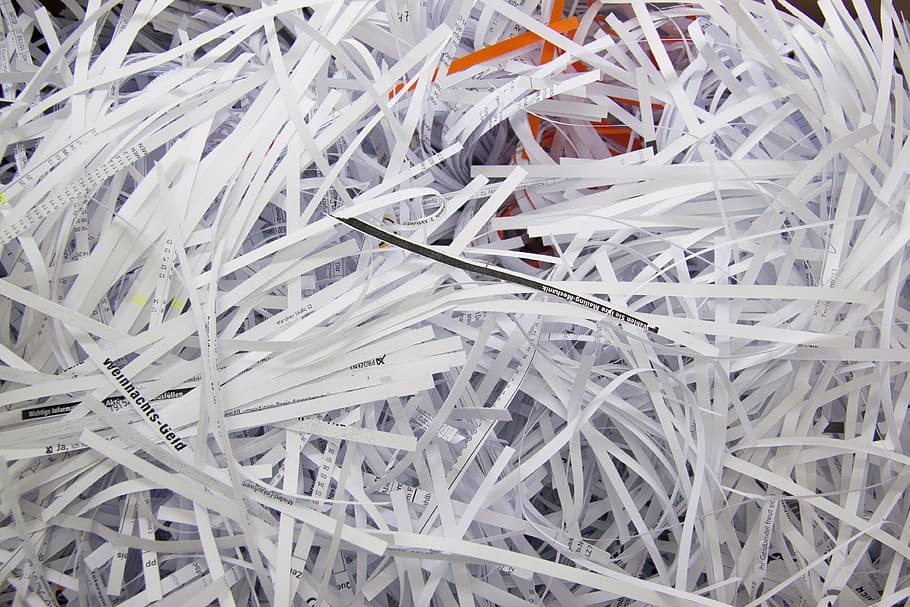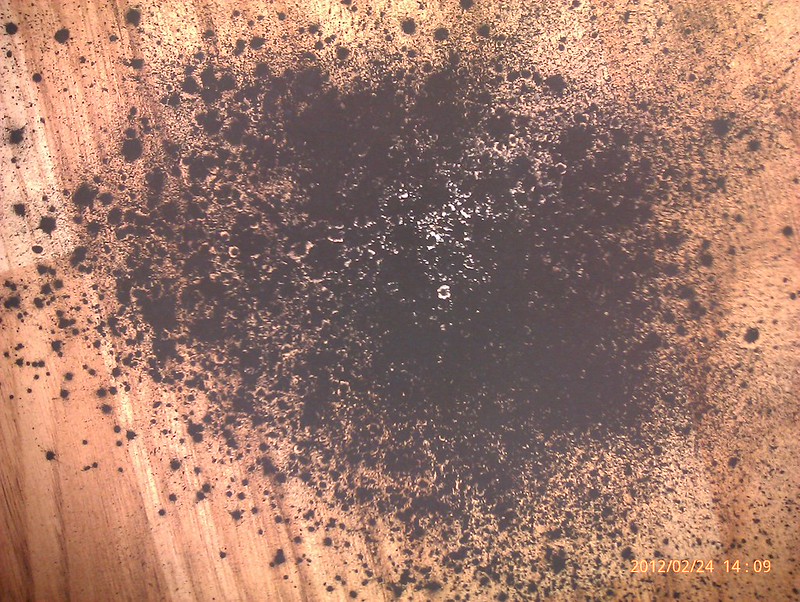
Is it safe to compost junk mail and bills? As you may know, newspaper is generally safe and something I have few qualms about.
Bills and junk mail are a different story, because the printed text and images are made with toner rather than ink. Toner is little more than finely ground plastic.
Determining the safety of printed products can get complicated, but here is a brief rundown of why I suggest you stay away from composting your bills, junk mail and home printed materials.

JUNK MAIL, BILLS AND STATEMENTS : We all get some, and while there are ways to reduce it, you can’t avoid it entirely. Once in hand, options are pretty much limited to recycling, lining bird cages and composting.
These items are generally printed with photocopiers/laser printers in order to send the same material to thousands of people but individualized with your name and address printed on them.
Laser printer speed can vary widely, and depends on many factors, including the graphic intensity of the job being processed. The fastest models can print over 200 monochrome pages per minute (12,000 pages per hour). The fastest color laser printers can print over 100 pages per minute (6000 pages per hour). Very high-speed laser printers are used for mass mailings of personalized documents, such as credit card or utility bills, and are competing with lithography in some commercial applications.[23]
https://en.wikipedia.org/wiki/Laser_printing
These high-speed printers do NOT use soy or petroleum based inks, these use “toner.” What, you might logically ask, is toner? All emphasis below is my own.
“So what is toner? The short answer is: It’s an electrically-charged powder with two main ingredients: pigment and plastic.”
https://computer.howstuffworks.com/laser-printer9.htm
“Toner is made up mostly of finely ground polyester, which is a type of plastic. Printer toner is used in laser printers and copiers to form the printed text and images on the paper. In its early form it was a mix of carbon powder and iron oxide. Then, to improve the quality of the printout, the carbon was melt-mixed with a polymer. Toner particles are melted by the heat of the fuser, and are thus bonded to the paper. These printers print fast and text comes out sharp and clear. Because of the fast speed and quality text, laser printers are commonly found in busy environments.”
https://www.farratech.com/what-is-printer-toner/
Toner is a powder mixture used in laser printers and photocopiers to form the printed text and images on the paper, in general through a toner cartridge. Mostly granulated plastic, early mixtures only added carbon powder and iron oxide, however mixtures have since been developed containing polypropylene, fumed silica, and various minerals for triboelectrification.[1]
Wikipedia
Or the title of an article from Wired Magazine gets right to the point: “Inside Laser Printer Toner: Wax, Static, Lots of Plastic” The article then quickly explains:
Turns out toner is mostly powdered plastic—and that’s key to the whole technology. Plastic has two handy properties: You can move it around like magic with static electricity, and then you can melt it onto the paper for crisp, smudge-proof images.
Despite all of this, people like to say that bills and junk mail are safe to compost because “ink is all soy based these days,” even though these bills are typically made with toner rather than ink.

It isn’t that these people have weighed the pros and cons of putting plastic in their compost, it is that they don’t know (and in many cases refuse to admit once presented with evidence) that the plastic is even there. It is much easier to simply state ‘junk mail is all soy based!’ and ignore the facts.
Will the plastic from toner cause problems? Is it safe?
If you’re composting, you’re probably looking to help the environment and you’re probably interested in eating food that wasn’t grown in contaminants. While it is impossible to grow food without any contaminants because of the polluted world we live in, you probably don’t want to add more contaminants. (The composting newspaper article discusses contamination in soil far away from pollution sources.)
So the answer to the question of whether it is safe is “I don’t know,” and neither do you, unless you have access to a study about the issue. (If you do, please provide a link below.),
However, adding plastic in the form of toner certainly goes against the grain of what most composters and gardeners are striving for. While it seems unlikely that adding paper in the quantity most home gardeners would use is likely to cause significant problems, without studies, we don’t know.
Seriously though, why would you want to add plastic to your compost?
ps – there is a difference between toner and ink. Inks have their own problems and I’ll try to get to that in a future post.

Thank you for the insight. Composting is normally a good thing but it is easy to overlook details that contribute to polluting our land.
so it’s ok to compost paper that has been through a household printer?
I wouldn’t. If it is a laser printer then the toner uses tiny pieces of plastic in the pigment. If it is an ink jet printer it likely uses one of two types of ink: Dye-based or pigment based. The former is usually based in either water or glycol and is more common for home users. (Photographers prefer pigment based.)
Not knowing for certain what is used, I’d avoid it, because there are so many other carbon-rich materials available, such as cardboard, that are better and known to be safe.
I have been using my paper shredding in compost, thinking paper was safe. I never even considered the toner. I’m stopping immediately. Thanks for the information.
Thank you so much for this thoughtful and well explained information! I appreciate it.